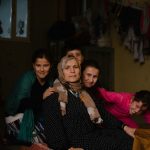There are times that our efforts to do “relief” can clash with local business people. Have you ever thought about it before? Someone ships in a container of clothing, gives it away at a local church, and three local clothing shops go out of business because they can’t compete with “free” clothes. This past week, a Brigada participant named Jen wrote to us about this idea. She wrote in regard to free handouts (shipped in as a form of relief) and we’ve adapted her comments here for a broader audience. She wrote, “Who are we to bring in these items to hand out for free and put local people out of business? I live in Mali, West Africa, one of the poorest countries in the world, and everywhere I go there are guys on the corner selling inexpensive things. For the locals, they cost less than $1 (I have to pay $2 😏). Even at that low price, those vendors are making a living somehow. Who are we to come in and undercut their livelihood? I’ve never been in a Malian village that didn’t sell basic clothing items and where therefore someone was depending on selling these items to feed his family. But if some mission team came in with free clothing items for everybody, I suspect his kids would go hungry. I feel this way even about larger scale items. A few years ago I heard about an org that distributed the most basic wheelchairs in Ghana. If Ghana is anything like Mali (and they are in fact more prosperous), there are local blacksmiths who build perfectly adequate wheelchairs, and have the capability to repair them. I couldn’t help but wonder if the org would need to fly in repair persons for their fancy wheelchairs (or if they would simply be discarded as so often happens here when foreign imports break). How many more wheelchairs could have been provided if they had used their funds to buy locally (cheaper than imports PLUS you save the cost of air freight) and deposit funds for maintenance with a local partner?”
What’s your feeling regarding the tension between relief and local economies? How do you know “when helping hurts” (to quote Fikkert’s book title)? How do you avoid hurting those who try to help locally? Please click comment if you have advice. Thanks in advance for your help! (And thanks, Jen, for your pondering!)












There is a lot of truth in what Jen wrote.
I like the thought process in this article: https://www.alifeoverseas.com/one-question-to-help-you-evaluate-ministry-among-the-poor/
A quote from it: “…a rough way of measuring whether something holds the seeds of long-lasting impact or not. It’s contained in this simple, 3-word question: Is this replicable?
In other words, is this approach to church planting, or development among the poor, an approach that local people can repeat when I’m no longer around? Or does it require my expertise and outside resources to make it last?”
I think most people assume that if there was some one available who could fulfil the request then whoever was “on the ground” wouldnt be asking for help.. So maybe the question should be -where is the communication broken in terms of who is the original asker and who is able to determine if there is a real need. I’ve lost track of the number of emails I have received asking if they can “join our ministry and get support from us”. OR is it a matter of control and not wanting to allow people who live there take control of what they are doing? and how do we who live in the US verify that they really dont need them ?